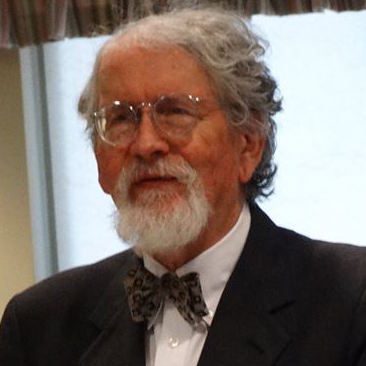

 Those Victorians who were aghast when Darwin said they had monkeys and apes in their family tree didn’t know the half of it. We now know that Darwin glimpsed only a few twigs of a huge family tree. We share DNA with every living thing. It shouldn’t be too surprising that chimpanzees and humans shared about 98 percent of DNA, but I find it astounding that we and zebra fish share 85 percent of our DNA! Then there are our relatives the fruit flies (36 percent), roundworms (21 percent), and bacteria (seven percent). And with our very distant cousins, mustard grass—a plant, for goodness sakes!–we share 15 percent of DNA. [“Genes in Common,” The Tech Museum of Innovation, http://genetics.thetech.org/online-exhibits/genes-common. Accessed March 24, 2018.]
Those Victorians who were aghast when Darwin said they had monkeys and apes in their family tree didn’t know the half of it. We now know that Darwin glimpsed only a few twigs of a huge family tree. We share DNA with every living thing. It shouldn’t be too surprising that chimpanzees and humans shared about 98 percent of DNA, but I find it astounding that we and zebra fish share 85 percent of our DNA! Then there are our relatives the fruit flies (36 percent), roundworms (21 percent), and bacteria (seven percent). And with our very distant cousins, mustard grass—a plant, for goodness sakes!–we share 15 percent of DNA. [“Genes in Common,” The Tech Museum of Innovation, http://genetics.thetech.org/online-exhibits/genes-common. Accessed March 24, 2018.]
We are one ball of life on this blue-green planet, related at least a little bit to every living thing, and for our existence on how we take care of our world. We are the dominant creatures on this planet, but as cell biologist Ursula Goodenough reminds us, we are “but a tiny part of an enormous context.” In her book, The Sacred Depths of Nature, she challenges us:
We certainly aren’t preserving that “elegance and grace” now. Everywhere one looks; there is evidence of the degradation that we humans are inflicting on the planet, from climate change to the “silence of the frogs,” in which species disappear because of our toxins. We clearly have prudential reasons to be concerned about what we are doing to our world.
We need to take heed the warning that Ethical Leader Edward L. Ericson delivered nearly fifty years ago in an address at the Washington Ethical Society. He told his listeners that “A generation never has the right to forfeit the future; it is not ours to hold hostage…Not one of us is immortal. But we must safeguard with religious humility the immortality of the human future.” [Edward L. Ericson, “Escape from Our Ideological Wonderlands,” address at the Washington Ethical Society, 1970.] He was primarily talking about the nuclear threat, but I read these words with awe as I realize that in this half century we have come to understand that we are not just jeopardizing the human future but the future of many species. Certainly, we will care the most about the future of our own kind, but it seems increasingly difficult to disentangle our fate from the fate of even our distant relatives.
Our challenge is to build an ethic—I’d call it a religious ethic—that recognizes our creatureliness, that sees us as part of a family that is broader than homo sapiens. I think Ethical Culture, and liberal religion generally, provides us with the intellectual and emotional tools to do this. Expanding knowledge inspires awe, but in itself does not awaken our desire and fire commitment to walk the path of environmental resilience. When Goodenough talks about finding “a way to express gratitude for our existence,” she is talking about an essentially religious attitude. As the great American philosopher John Dewey stated in A Common Faith,
The sense of a larger whole forms an important part of Felix Adler’s concept of the Ethical Universe. His great contribution here is that this Whole is not an undifferentiated mass, but is composed of myriad unique individuals, contributing to and necessary to the Whole. He stresses “the immense practical importance of holding fast to diversity, as indefeasible, and at the same time stressing the unity” of the Whole. [Felix Adler, An Ethical Philosophy of Life Presented in Its Main Outlines (1918), p. 115. He devotes two chapters to the Ideal of the Whole.] Now, Adler’s concept was both human-centric and directed to defining what he termed the “Spiritual Universe,” so it requires a bit of pushing and prodding to enlist his words in the service of an environmental ethic. Nonetheless, I think we can extend his thinking to support such an approach. When he urges us to keep in mind both the universe of infinitely unique individuals and the Ideal of the Whole, I find it easy to think of the uncounted and perhaps uncountable varieties of life—our shared DNA family—and the one planet that is our home.
Our tradition provides us with intellectual tools, but building such an ethic will take more than these concepts, necessary though they are. We must express these concepts compellingly and urgently. We must create music and art to inspire us—creatures of a built environment, privileged users of massive amounts of the earth’s resources, heirs to centuries of degredation—to see the world and our place in it anew, and be inspired, to again use Edward Ericson’s words, to “safeguard with religious humility the immortality of the human future,” which we now know means safeguarding the future of our fellow family members, no matter how little DNA they share with us.
Sign up for emails from AEU